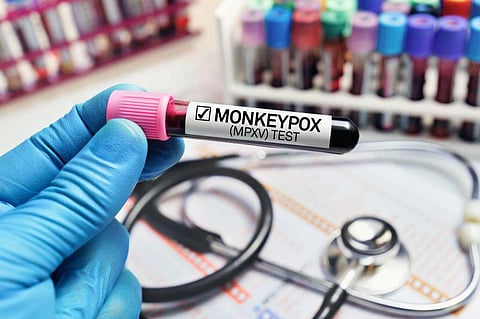TUESDAY, March 7, 2023 (HealthDay News) -- In a report published in the March 3 issue of the U.S. Centers for Disease Control and Prevention Morbidity and Mortality Weekly Report, interim clinical treatment considerations are presented for severe manifestations of mpox.
Agam K. Rao, M.D., from the CDC in Atlanta, and colleagues note that most of the patients affected by mpox have been immunocompetent and experienced 10 or fewer rash lesions. Supportive care, including pain control, is recommended for these patients. However, certain patients, especially those with moderate or severe immunocompromise, such as advanced HIV infection, have experienced severe manifestations of mpox, including ocular lesions, neurologic complications, myopericarditis, mucosal lesion complications, and uncontrolled viral spread. Therapeutic medical countermeasures (MCMs) developed for smallpox or shown to be effective against Orthopoxvirus (OPXV) have been used for severe mpox. More than 250 reports of U.S. mpox consultations were provided during May 2022 to January 2023. Data from animal models, MCM use for human cases of related OPXV, unpublished data, input from experts, and experience during consultations were synthesized to provide interim considerations for clinical treatment. The effectiveness of MCMs for treating human mpox needs to be evaluated using randomized controlled trials and other research studies.
"Until data from controlled studies are available, these interim clinical considerations facilitate strategic decision-making about the use of MCMs to manage specific severe manifestations of mpox," the authors write.
Abstract/Full Text


